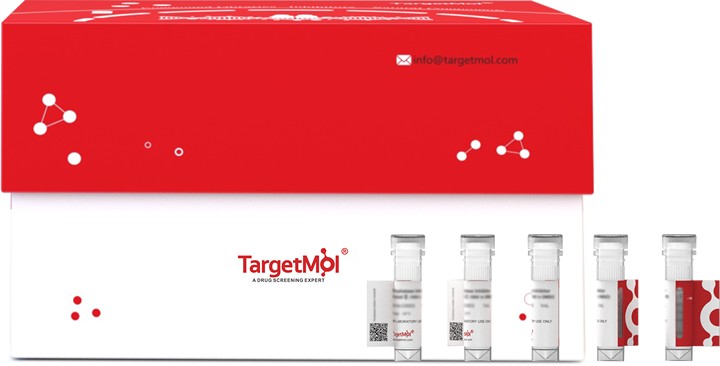购物车
 您的购物车当前为空
您的购物车当前为空
别名 type II interferon, T cell interferon, MAF, Immune Interferon, IFN-gamma, IFNG, IFI, IFG
IFN gamma Protein, Rat, Recombinant is expressed in CHO Cells. The accession number is P01581.


为众多的药物研发团队赋能,
让新药发现更简单!
IFN gamma Protein, Rat, Recombinant is expressed in CHO Cells. The accession number is P01581.
| 规格 | 价格 | 库存 | 数量 |
|---|---|---|---|
| 5 μg | ¥ 232 | 现货 | |
| 10 μg | ¥ 360 | 现货 | |
| 20 μg | ¥ 492 | 现货 | |
| 50 μg | ¥ 756 | 现货 | |
| 100 μg | ¥ 1,130 | 现货 | |
| 200 μg | ¥ 1,890 | 5日内发货 | |
| 500 μg | ¥ 3,780 | 5日内发货 | |
| 1 mg | ¥ 6,420 | 5日内发货 |
| 产品描述 | IFN gamma Protein, Rat, Recombinant is expressed in CHO Cells. The accession number is P01581. |
| 生物活性 | ED 50 < 2.5 ng/ml, measured by cytotoxicity assay using WEHI-279 cells, corresponding to a specific activity of > 4.0 × 10 5 units/mg. |
| 研究背景 | Interferon-γ (IFN-γ), also known as Type II interferon or immune interferon, is a cytokine produced primarily by T-lymphocytes and natural killer cells. The active form of IFN-γ is an antiparallel dimer that interacts with the receptor IFN-γR1 and sets off IFN-γ/JAK/STAT pathway. IFN-γ signaling does diverse biological functions primarily related to host defense and immune regulation, including antiviral and antibacterial defense, apoptosis, inflammation, and innate and acquired immunity. While IFN-γ–induced inflammatory cascade summons a variety of immune-related cell types, such as macrophages, natural killer (NK) cells and cytotoxic T lymphocytes (CTLs), IFN-γ is also implicated in resistance to NK cell and CTL responses and in immune escape in a variety of cancers. |
| 种属 | Rat |
| 表达系统 | CHO Cells |
| 标签 | Tag Free |
| 蛋白编号 | P01581 |
| 蛋白构建 | Glu23-Cys156 |
| 蛋白纯度 | > 95% as determined by SDS-PAGE; > 95% as determined by HPLC |
| 缓冲液 | Lyophilized from a 0.2 μm filtered solution in PBS. |
| 复溶方法 | Reconstitute the lyophilized protein in sterile deionized water. The product concentration should not be less than 100 μg/ml. Before opening, centrifuge the tube to collect powder at the bottom. After adding the reconstitution buffer, avoid vortexing or pipetting for mixing. |
| 别名 | type II interferon, T cell interferon, MAF, Immune Interferon, IFN-gamma, IFNG, IFI, IFG |
| 内毒素 | < 0.2 EU/μg of protein as determined by the LAL method. |
| 分子量 | 15~25 kDa (Non-reducing conditions) |
| 运输方式 | In general, Lyophilized powders are shipping with blue ice. Solutions are shipping with dry ice. |
| 存储 | Upon receiving, this product remains stable for up to 6 months at lower than -70°C. Upon reconstitution, the product should be stable for up to 1 week at 4°C or up to 3 months at -20°C. For long term storage it is recommended that a carrier protein (example 0.1% BSA) be added. Avoid repeated freeze-thaw cycles. |
对于不同动物的给药剂量换算,您也可以参考 更多